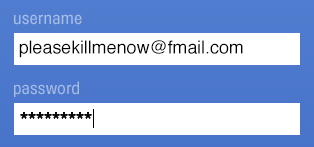 How would you feel if you had been told in the early days of the Web that in the year 2018 you would still need logins and passwords for damned near everything.
How would you feel if you had been told in the early days of the Web that in the year 2018 you would still need logins and passwords for damned near everything.
Your faith in the tech world would be deeply shaken, no?
And what if you had been told that in 2018 logins and passwords would now be required for all kinds of other shit, from applications on mobile devices to subscription services on TV?
Or worse, that in 2018 you would be rob-logged-out of sites and services frequently, whether you were just there or not, for security purposes — and that logging back in would often require “two factor” authentication, meaning you have to do even more work to log in to something, and that (also for security purposes) every password you use would not only have be different, but impossible for any human to remember, especially when average connected human now has hundreds of login/password combinations, many of which change constantly?
Would you not imagine this to be a dystopian hell?
Welcome to now, folks. Our frog is so fully boiled that it looks like Brunswick stew.
Can we please fix this?
Please, please, please, tech world: move getting rid of logins and passwords to the top of your punch list, ahead of AI, ML, IoT, 5G, smart dust, driverless cars and going to Mars.
Your home planet thanks you.
[Addendum…] Early responses to this post suggest that I’m talking about fixing the problem at the superficial level of effects. So, to clarify, logins and passwords are an effect, and not a cause of anything other than inconvenience and annoyance. The causes are design and tech choices made long ago—choices that can be changed.
Not only that, but many people have been working on solving the identity side of this thing for many years. In fact we’re about to have our 27th Internet Identity Workshop in October at the Computer History Museum. If you want to work on this with other people who are doing the same, register here.
Leave a Reply